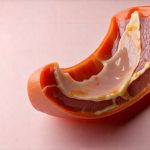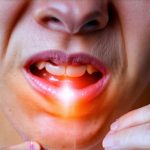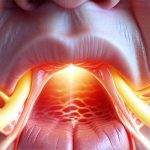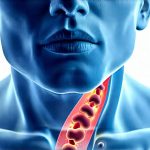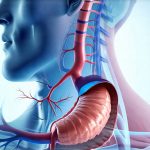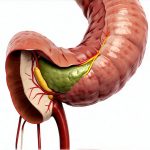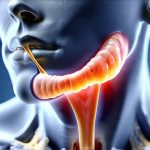The esophagus, often called the food pipe, is a muscular tube connecting your throat to your stomach. It’s responsible for safely transporting food from where you chew it to where digestion truly begins. We rarely think about this vital process until something goes wrong – and unfortunately, many seemingly innocuous eating habits can gradually inflict damage on this delicate organ over time. These aren’t necessarily dramatic events like choking; rather, they are slow, cumulative effects that can lead to chronic discomfort, difficulty swallowing (dysphagia), and even serious health conditions if left unaddressed. Understanding these habits is the first step toward protecting your esophageal health and ensuring comfortable, effortless eating for years to come.
The damage isn’t always obvious immediately. Often, it starts with subtle symptoms – a little heartburn here, some mild difficulty swallowing there – that are easily dismissed or attributed to something else. This can allow the underlying problem to worsen, leading to more significant issues down the road. The esophagus is surprisingly resilient but also vulnerable, and consistent strain from certain dietary choices and eating behaviors can overwhelm its natural defenses. It’s crucial to remember that prevention is far easier than treatment when it comes to esophageal health, so being mindful of how we eat is paramount. Considering eating habits can contribute to the problem is a great first step.
Dietary Culprits: Foods That Can Irritate or Damage the Esophagus
Certain foods are notorious for triggering esophageal problems due to their inherent properties or how they interact with our digestive system. Acidic foods are perhaps the most well-known offenders, as they can directly irritate the esophageal lining and exacerbate conditions like gastroesophageal reflux disease (GERD). These include citrus fruits and juices (oranges, grapefruit, lemons), tomatoes and tomato-based products (sauces, ketchup, salsa), and vinegar. Spicy foods, while enjoyable for many, contain capsaicin which can also cause irritation and inflammation in the esophagus. However, it’s not just acidity or spice; even seemingly harmless foods can contribute to problems if consumed excessively or at the wrong time. It’s important to understand how to identify calming food choices.
Fatty foods are another major concern because they slow down gastric emptying – meaning food stays in the stomach longer. This increases the risk of acid reflux, as there’s more pressure on the lower esophageal sphincter (LES), the muscle that prevents stomach acid from flowing back up into the esophagus. Caffeine and alcohol, while not foods themselves, can also relax the LES, making reflux more likely. Carbonated beverages contribute similarly to increased abdominal pressure, forcing potential reflux upwards. It’s important to note that individual sensitivities vary; what bothers one person may not bother another. Are you eating the right amount for optimal digestion?
Finally, hard or crunchy foods, especially if not chewed thoroughly, can physically damage the esophageal lining over time. This is less about chemical irritation and more about mechanical stress. Think of dry crackers, toast crumbs, or even poorly masticated nuts – these can create micro-tears in the esophagus with repeated exposure. The key isn’t necessarily to eliminate these foods entirely (unless a doctor advises it), but rather to consume them in moderation, chew them thoroughly, and be mindful of how your body reacts.
Eating Habits That Exacerbate Esophageal Issues
Beyond specific food choices, how we eat plays a huge role in esophageal health. One common problem is eating large meals. Overfilling the stomach puts excessive pressure on the LES, making reflux more probable. Similarly, eating quickly and not chewing thoroughly forces your esophagus to work harder and increases the risk of irritation from undigested food particles. A leisurely pace allows for proper digestion to begin in the mouth, reducing strain further down the line. Supporting digestive comfort through mindful eating is key.
Another damaging habit is lying down soon after eating. Gravity helps keep stomach acid where it belongs – in the stomach. When you lie down, gravity’s advantage is lost, and acid has a much easier time flowing back up into the esophagus. It’s generally recommended to wait at least 2-3 hours after eating before lying down or going to bed. Finally, frequent snacking throughout the day keeps your digestive system constantly working, potentially leading to increased acid production and a higher risk of reflux. Consistent, scheduled meals are preferable to constant grazing.
The Role of GERD and Reflux in Esophageal Damage
Gastroesophageal reflux disease (GERD) is a chronic condition where stomach acid frequently flows back into the esophagus. While occasional heartburn is normal, persistent reflux can lead to erosive esophagitis, inflammation and damage to the esophageal lining. Over time, this can cause scarring, narrowing of the esophagus (strictures), and even increase the risk of Barrett’s esophagus – a precancerous condition. It’s vital to differentiate between occasional heartburn and frequent, troublesome reflux that might indicate GERD. Habits that harm pancreatic function can also contribute to these issues.
Reflux isn’t always about acid; it can also involve bile or other digestive fluids. The symptoms of GERD can be varied but often include persistent heartburn, regurgitation, difficulty swallowing, chest pain, and a chronic cough. If you experience these symptoms regularly, it’s important to consult with a healthcare professional for diagnosis and appropriate management. Lifestyle modifications, such as those mentioned above (smaller meals, avoiding trigger foods, staying upright after eating), are often the first line of defense against GERD, but medication may also be necessary in some cases. It is possible plant based eating can help heal the gut faster.
Identifying When to Seek Medical Attention
While many esophageal issues can be managed with lifestyle changes, it’s crucial to know when to seek medical attention. Persistent or worsening heartburn that doesn’t respond to over-the-counter medications is a red flag. Difficulty swallowing – particularly if food seems to get stuck in your throat – should also prompt a visit to the doctor. Other warning signs include unexplained weight loss, chest pain (especially if it mimics heart attack symptoms), and persistent vomiting or regurgitation.
A healthcare professional can perform tests to diagnose the underlying cause of your esophageal problems. These may include an endoscopy (using a thin, flexible tube with a camera to visualize the esophagus), pH monitoring (to measure acid levels in the esophagus), and motility studies (to assess how well the esophageal muscles are functioning). Early diagnosis and intervention are essential for preventing long-term complications and ensuring optimal esophageal health. Remember that self-treating can sometimes mask underlying issues, so professional evaluation is always recommended if you have concerns. Can eating the same food every day cause reactions?


